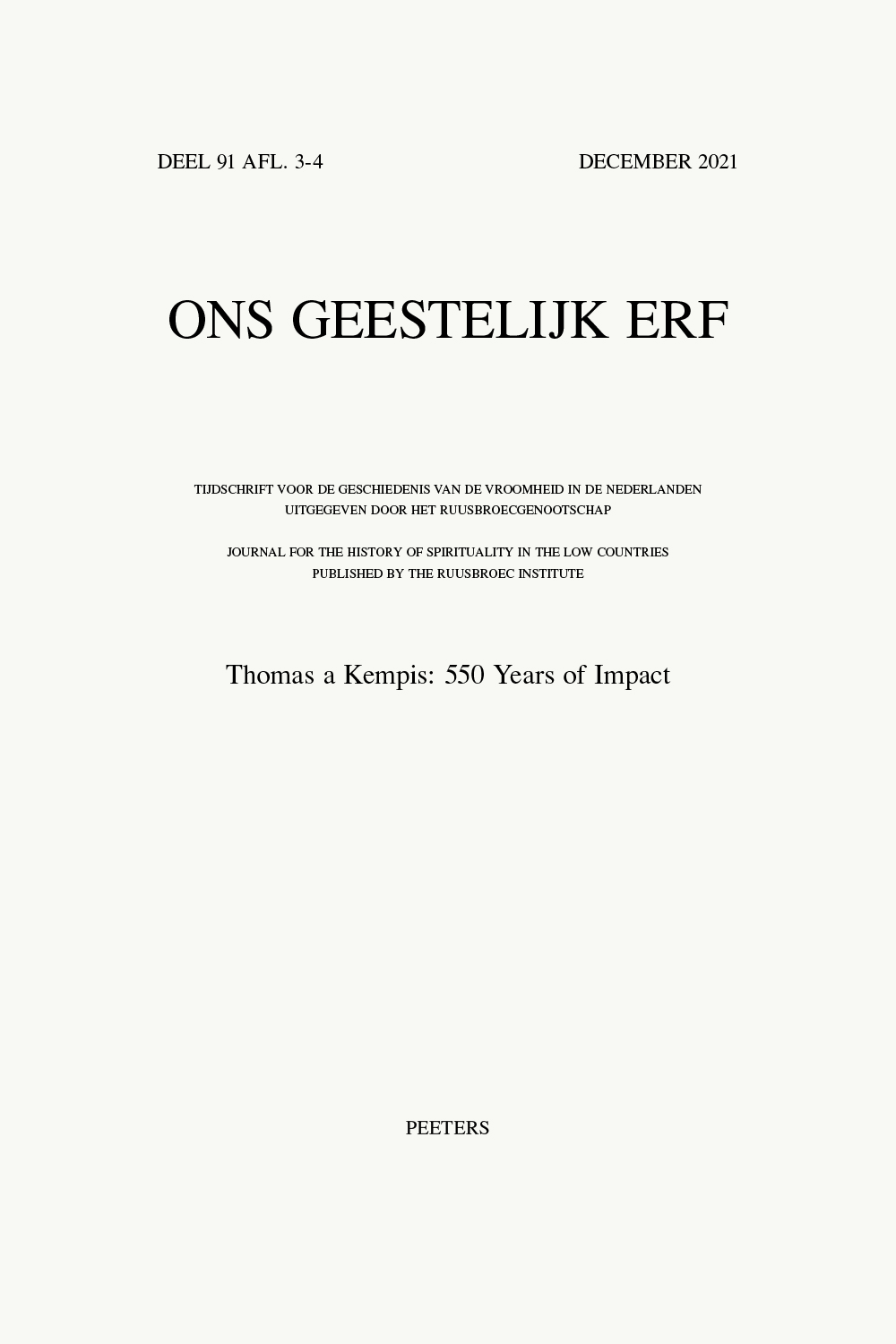next article in this issue  |

Preview first page |
Document Details : Title: Commune a tous par largesse de pure charité Subtitle: Common Love in Beatrice of Nazareth and Marguerite Porete Author(s): ARBLASTER, John , FAESEN, Rob Journal: Ons Geestelijk Erf Volume: 83 Issue: 4 Date: December 2012 Pages: 297-323 DOI: 10.2143/OGE.83.4.2959686 Abstract : This article focuses on the thirteenth-century origins of the mystical concept of common love. The Seven Manners of Love by Beatrice of Nazareth and The Mirror of Simple Souls by Marguerite Porete are the earliest vernacular sources to refer to this concept. First, the article has sought to clarify the possible connections between Beatrice’s and Marguerite’s mystical theology; second, it discusses their reflections on the apogee of the mystical experience; third, it analyses a number of crucial theological questions in the Mirror that have been interpreted in different ways in the secondary literature; fourth, finally, it has sought the possible sources for the doctrine of common love in a number of twelfth century mystical texts, such as works by William of Saint-Thierry and most importantly, The Four Degrees of Violent Love by Richard of Saint-Victor. Although both authors’ conceptions of common love appear to denote the same fundamental mystical reality, unlike Beatrice, Marguerite does not appear to defend a physical-spiritual dualism, as it would conflict with her notion of the transformation of the will. This article thus suggests that Marguerite acted as a critical inheritor of Beatrice’s text, providing a distinctive contribution to the development of mystical theology in the Low Counties that would later influence John of Ruusbroec. |
|


